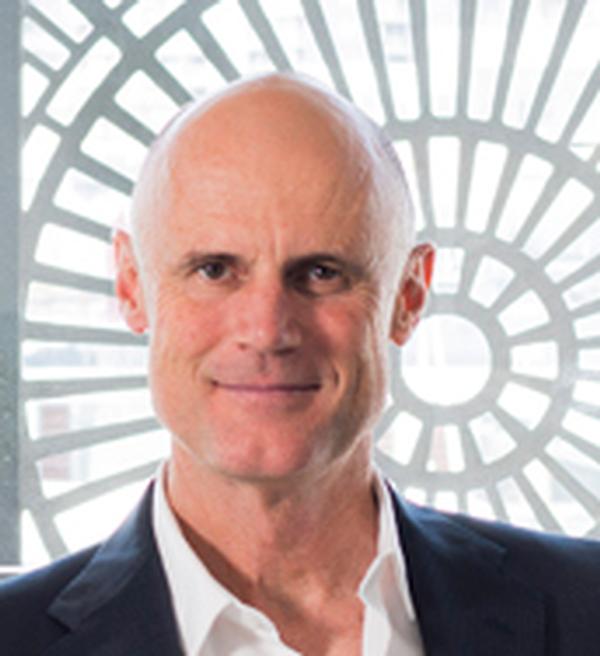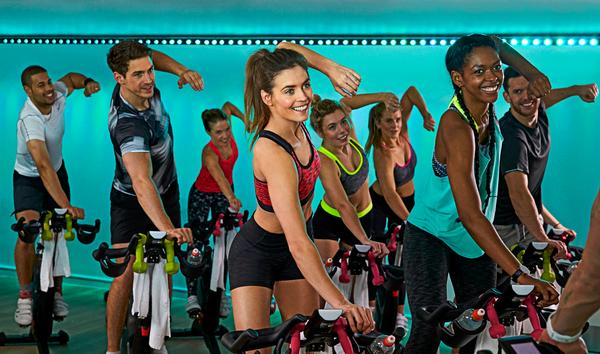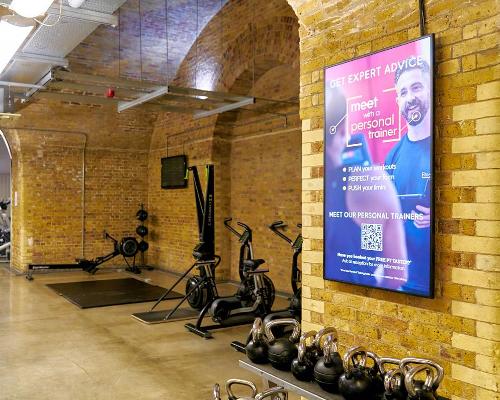features
2017 predictions
What might the coming year bring for the fitness and physical activity sector? We ask our panel of experts
Justin Tamsett,
Founder,
Active Management, Australia

For years, the ‘face’ of the fitness industry has been employed receptionists, gym floor staff and group fitness instructors. They followed our guidelines and generally bought into our culture.
As the industry moves forward, the ‘face’ of many gyms now are the personal trainers – often contracted, with no buy in to the health and fitness club’s culture.
As health clubs fight to reduce their wage bill, this outsourcing of personal training will prove more destructive to their brand than the cost of employing staff.
Personal trainers who contract to gyms across the globe are generally not accountable to anyone. This means they take no notes on clients, there’s no periodised programming, and there’s very little ‘going the extra mile’ service.
Consequently, if the client doesn’t get the results, they may simply resolve to quit the gym. The losers here are the client, who didn’t get results; the gym, which lost a member; and the industry, with a dissatisfied personal training client. Meanwhile, within a mere 24 to 48 hours, the personal trainer has secured another new client thanks to the gym’s marketing at point-of-sale.
Over the next few years, I predict we will see the return of in-house personal training services. This will give business owners and managers far more control over one of their greatest assets to improving retention.

Ray Algar,
MD,
Oxygen Consulting, UK

The health club industry was built with a focus on the tangible experience: impressive buildings, equipment and other assets to attract customers – often based on the location’s convenience to home or work. When you’re the only choice in town, cultivating a sound reputation may not have been a strategic imperative.
Now the world is a very different place and consumers are awash with choice. So will people increasingly rely on an organisation’s reputation to help them to navigate through the increasingly congested health and fitness marketplace?
Reputation is an emotional reaction to an organisation, and I believe part of the industry has historically paid far too little attention to it. Removing a few staff from the gym floor, cutting a few classes or stubbornly enforcing a contract when a member’s life suddenly changes may create a short-term win, but at what cost to the club’s long-term reputation?
Conversely, a sound reputation could become the catalyst for more elevated experiences and deeper relationships, resulting in something remarkable – a club worthy of sharing with others.
I hope 2017 will be the year when the actions of an organisation are more consistent with the expectations of all its stakeholders – and when the question “Does this action or decision help to improve our long-term reputation?” is consistently and continually addressed.
"I hope 2017 will be the year when the actions of an organisation are more consistent with the expectations of all its stakeholders"

Phillip Mills,
CEO,
Les Mills International

Budgets and boutiques will maintain pressure on traditional clubs, and we’ll all be challenged by digital disruption.
Traditional clubs will take measures to protect their top-end members from boutiques, upgrading their group training offer in HIIT/strength, cycle, mind body/barre and martial arts/boxing. This will either comprise a combination of internal and external boutiques that members pay an extra per session or monthly fee to use or upgraded and larger internal studios included free with membership (we’ve data on the economic advantages of the latter).
Digital disruption is occurring in most industries. After 60 years’ dominating its market, Weightwatchers lost 90 per cent of its market capitalisation in four years, eaten by online, apps and devices. Whereas Kaylah Itsines has 10 million followers and the Nike Training Club app has had tens of millions of downloads, advertising ‘Your personal trainer anywhere, any time’ – and it’s free.
This doesn’t necessarily spell doom for live clubs – Jack LaLanne, Jane Fonda and Richard Simmonds helped build the club industry. But the current online competitors are going after share of wallet and diversifying into live offerings. New York-based cycling concept Peloton is a good example of this. A major trend over the next few years will be clubs responding by offering their own at-home memberships.
On a positive note, while digital music hurt the traditional record companies, live music got bigger than ever. But live shows became a lot better and that’s what we have to do. This year we will see cooler, more experiential club designs, more entertaining equipment offerings and the mainstream arrival of immersive fitness.

Neil Harmsworth,
Co-founder, ,
PayAsUGym, UK

Customers have changed the way they buy, so operators need to change the way they sell’ – the title of a presentation I gave at LIW 2012 based on evidence that customers were moving online to make their buying decisions.
Demanding greater choice and flexibility than ever, customers were turning to technology to make fitness lifestyle choices.
Although arguably an emerging trend in 2012, its become accepted common wisdom today and remains absolutely relevant in informing predictions for the fitness sector in the year ahead.
Consequently, I believe the biggest development over the next 12 months will be the emergence of online marketplaces in the health and fitness sector.
Take a look at Google Trends and you’ll see that online searches for gyms and health clubs are at a volume similar to those in the food delivery market about 12 months ago. This is a sector where services such as UberEats, Deliveroo and JustEat are now significant sales channels for driving growth.
These online marketplaces are successful because they provide consumers with the flexibility and the choice they demand, combined with technology that enables buying decisions to be made from home. For operators, they provide incremental revenue, increased footfall and the ability to reach customers who wouldn’t previously have considered their services.
It has happened in others sectors too – think RightMove and Zoopla in the property market, Laundrapp or Hassle in the domestic services space, as well as countless other examples in finance, travel, transport and other sectors.
It’s clear that customers are familiar, and willing to engage, with marketplace models; and I predict that these services will play a major role in the health and fitness industry in 2017 and beyond.

Justin Mendleton,
Managing director,
MoveGB, UK

Innovation is increasing exponentially. Outside of fitness, we’re witnessing continual improvements in technology, with consumer sophistication and expectations rising accordingly. In an industry where we’re used to checking out new products once a year at a trade show, we will have to adapt – and quickly.
The rise of freelance and second-income workers will start impacting on our industry, as has taken place in the US, where the ‘gig economy’ is predicted to make up 40 per cent of the workforce by 2020 (Intuit). Traditional operators will start making better use of this resource, forming collaborations with freelance fitness professionals to optimise their physical assets, giving rise to matchmaking services to help facilitate this. This trend will reward fitness professionals who deliver great experiences.
Platforms that enable competitors to collaborate – be it through joint content marketing and shared education, or by offering flexible fitness memberships – will help move the industry to a much more customer-centric model. This will allow us to retain a larger share of the consumer’s wallet, reduce churn and grow the active market for all.

Tom Williams,
Managing director,
Parkrun, UK

For many years now, the fitness industry has been driven by outcomes rather than processes. In line with this, people have often joined gyms to achieve a singular end goal, rather than to engage in a sustainable long-term activity that complements other positive lifestyle choices.
I believe 2017 will be the year when consumers start prioritising health over fitness, realising that the latter does not guarantee the former.
Process-based health metrics like step counts, sleep consistency and volume, nutritional quality and stress levels will become more important than outcome measures like body weight, blood pressure or run times.
Processed carbohydrates and sugars will increasingly be perceived as unhealthy, and there’s also likely to be increased belief in the benefits of healthy fats, sun exposure, sleep prioritisation, low-level functional activity and stress management.
Subsequently, successful health and fitness professionals are likely to be those who move away from the ‘no pain, no gain’ camp, and towards a simpler, more natural, low-impact strategy to enable their clients to achieve all-round optimum health.

Stephen Tharrett & Mark Williamson,
Co-founders,
ClubIntel, US

Boutique fitness studios and microgyms will continue to draw a greater share of global consumer spend.
Back in 2015, US boutique fitness consumers were already spending around US$4bn (€3.7bn, £3.2bn) more a year engaging with their respective studios than traditional health club consumers were spending on membership fees.
As the world continues to urbanise, the boutique sector grows and the Millennial generation expands its purchasing influence, this revenue shift in favour of the boutiques will only become more evident.
Meanwhile, budget club mergers and wars will become a dominant feature within the sector. Over the past few years, budget clubs have been the fastest growing segment of the traditional fitness club industry – but the field is becoming saturated and the market will soon be unable to support everyone. Long-term success in this segment dictates that mergers must take place.
The fitness industry will continue to embrace new technologies to drive business: mobile apps, cloud-based monitoring, big data analytics and VR-driven experiences will create opportunities to engage consumers.
And consumers will continue to demand increased transparency and authenticity from operators. The days of clubs and studios not posting pricing online, baiting consumers into auto-renewal contracts, burying disclaimers and waivers in super fine print and holding consumers hostage to unfavourable contract terms are over.
"As the world continues to urbanise, the boutique sector grows and the Millennial generation expands its purchasing influence"




































































